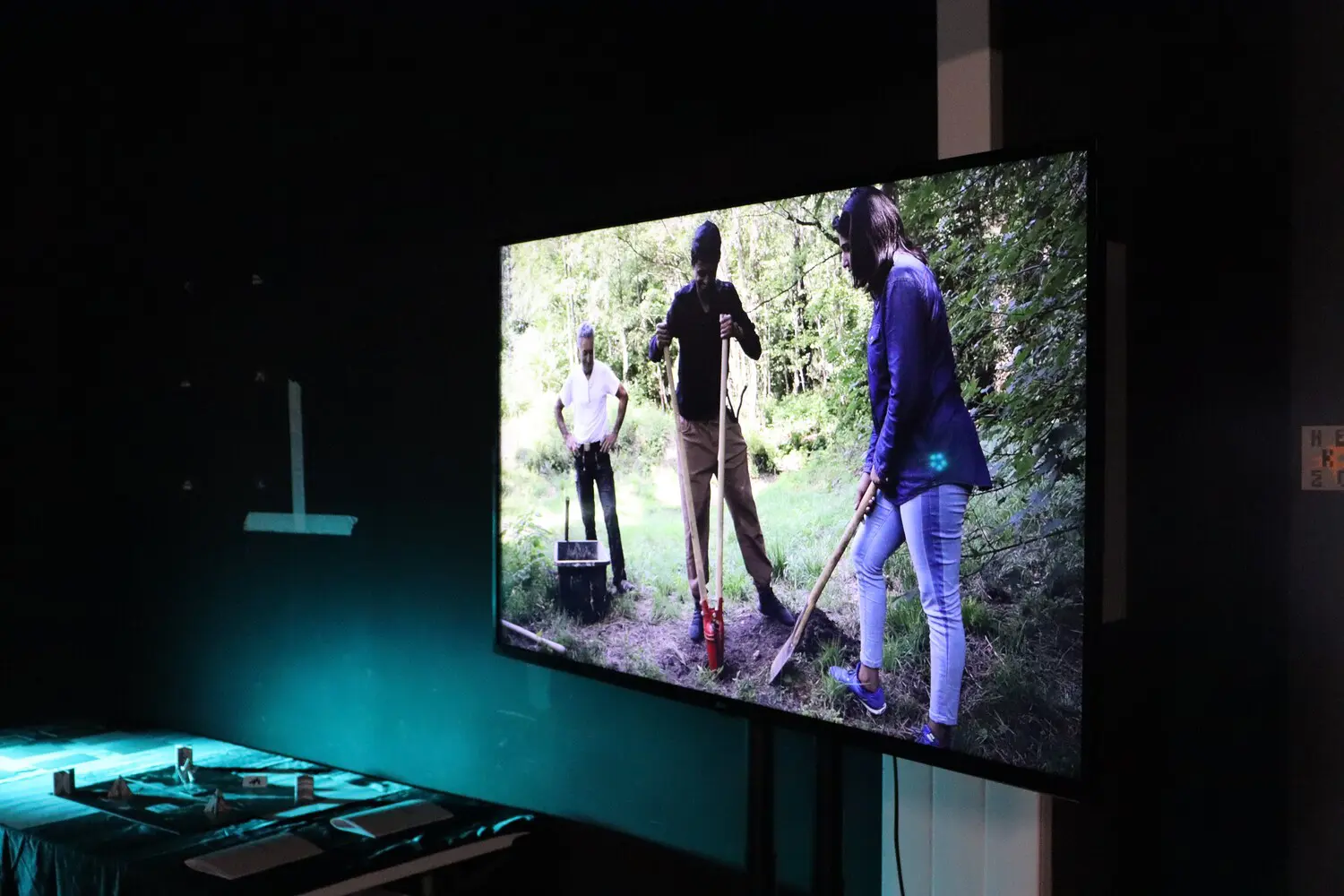
PR2: Circular Economies of Design
Circular Economies of Design
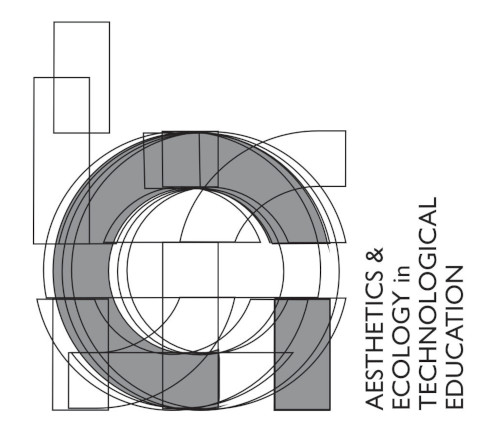
This Project Result proposes that an aesthetics of care in technological education is necessary to inculcate the principles of the circular economy (contributory economy): replacing obsolescence with restoration; privileging of repairability, and advocating for the right to repair and building local community-based repair capacity; reduction of waste through superior design; into technological education. (See Ellen MacArthur Foundation towards the Circular Economy, EU Action Plan for the Circular Economy, UN Sustainable Development Goals)
This PR develops the theoretical and historical positions mapped in PR1, taking the working definition of an aesthetics of care and testing them against real world scenarios. Aesthetics of care is understood as a praxis that offers new ways of understanding and addressing the familiar wicked problems of climate crisis as it impacts on all aspects of everyday life. PR2 set out to concretise the understanding of an aesthetics of care into transdisciplinary scenarios that can be transferred into curricula.
Central to this were the twin pillars of the circular economy (Kirchherr et al, 2017) and the contributory economy (Stiegler, 2010) The work package focused on the practice of an aesthetics of care within a technological educational framework; as such it is intended as a crash-course into the different ways to explore circular economy within a series of different technological and theoretical frameworks.
The task of the PR were:
Developing a series of seminars on the circular economy.
Analysing the role of the UN’s Sustainable Development Goals (2015) and the EU’s Action Plan for the Circular Ecoonomy (2020) in developing Corporate Social Responsibility (CSR) initiatives (Elalfy et al., 2020) with regard to circular models of responsible production and consumption and their implications in technological education.
Design of a repair hackathon and a re-use workshop to be later tested in the Teacher Programme and incorporated into the Student Programme . .
Aesthetics of Care & Circular Economies of Design Seminar
Universidad Politécnica de Cartagena hosted the first of a series of transdisciplinary public seminars that aim to expand understanding of Aesthetics of Care in the circular and contributory economies from a range of disciplinary perspectives, including engineering, design, philosophy, sociology, economics and critical making, among others.
The hybrid seminar took place on December 14 2022 with the following speakers:
Noel Fitzpatrick, Conor McGarrigle, Jose Serrano (TUD/UPCT)
Introduction to Aesthico and the seminar series
Santiago Pérez, Antonio Fornet (UTT/UPCT)
PR1 approach(es) to Aesthetics of Care
Cathaysa Martín-Blanco (Universidad de Granada)
An industrial system that is restorative and regenerative by design: From the 3R to the 10R
Martin Calisto Friant (Utrecht University)
From circular economy to circular society: analysing circularity discourses and policies and their sustainability implications
Noel Fitzpatrick (TUD)
Contributory Research and Contributory Economy
Patricia Reus, Josefa Fernández (UPCT)
Didactics of care. Choreographies in the domestic space
Round table Discussion with Santiago Pérez, Cathaysa Martín-Blanco, Martin Calisto Friant, Patricia Reus
Marinos Koutsomichalis ,Conor McGarrigle (CUT/TUD) Conclusions and closure
Click to view speaker bios and abstracts (PDF 9MB)
Circular Economy of Design & Sustainable Development Goals
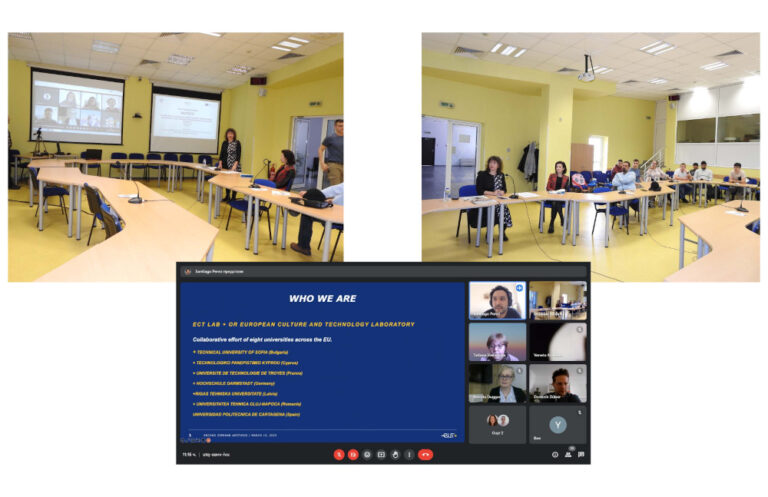
The second seminar in the series on the circular economy and sustainable development goals took place on March 15 as a hybrid event with participants in TU Sofia’s Library and Information Centre conference hall and online.
The seminar addressed aesthetics of care in the context of the circular economy and SDGs through the lens of humanities and social sciences, with a diverse range of speakers and perspectives exploring theoretical issues of social cohesion and justice in sustainable transitions with concrete examples drawn from real world scenarios of sustainable development.
Programme speakers:
Santiago Perez (UTT)
AesThiCo Project Introduction
Dominik Düber, Professor of Sustainable Transformation Hochschule Darmstadt (h_da)
Beyond participation – the gap between acceptance and acceptability on the way to a sustainable future
Tatiana Hubenova, Economic Research Institute at the Bulgarian Academy of
Science
Social well-being and the social cohesion policy in the context of Bulgaria’s integration to the EU
Jessica Clement, Smart City Institute at HEC Liège Management School Belgium
Conceptualizing Justice in Circular Economy Transitions
Reni Pantcheva, Doctoral candidate Department of Industrial Economics and Management at the Faculty of Economics and Business Administration, Sofia University St. Kliment Ohridski
ReTray: Smart system for separate collection of cigarette butts
Samantha Curle, Department of Education University of Bath, UK
Higher education medium of instruction and career prospects: an exploration of current and graduate Chinese students perceptions
Jérémie Joubert, EnvirobatBDM Marseille
Three controversies about ecological transition in the building sector
Marinos Koutsomichalis, (CUT)
Aesthetics of Care
Repair Hackathon
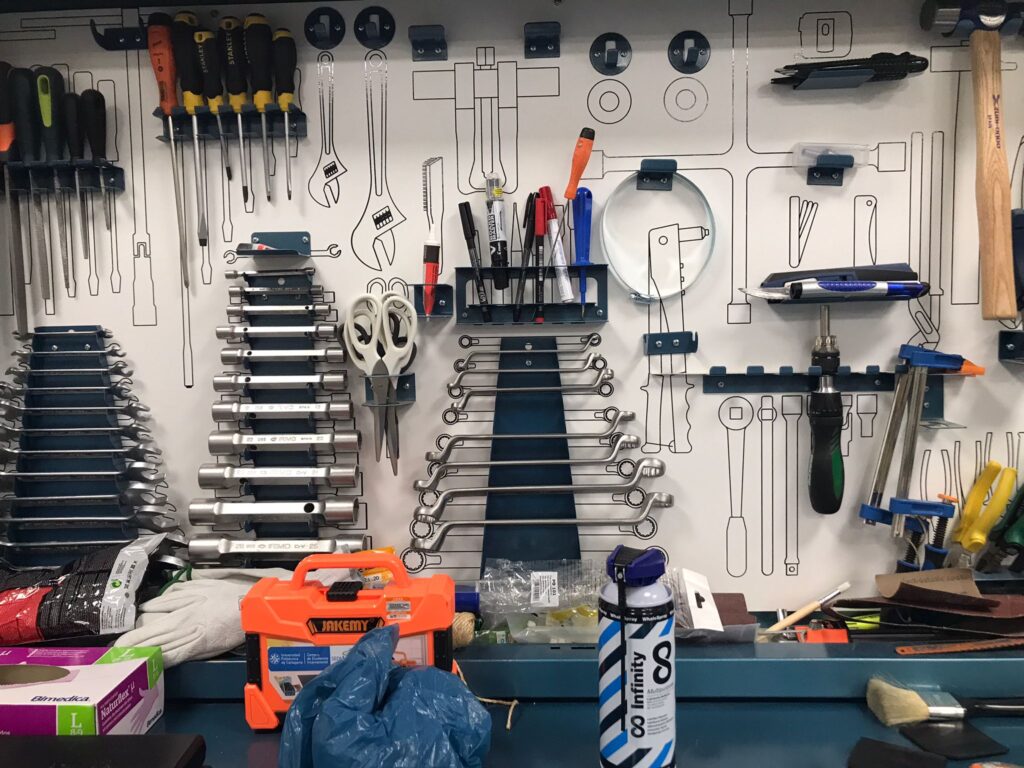
The Hackathon and re-use workshop were developed by PR2 in conjuction with PR3 and formed part of the first Intensive Study Programme held in Cartagena in May 2023. In this context the act of repair acts as reversing of the design process bringing together product designers, engineers and new media artists in an act of aesthetic care and that illuminates the long tail of design decisions. Design of a re-use workshop pivoting on ways to creative re-use obsolete artefacts, technologies, algorithms, and processes. Feedback from its testing fed back into further refinement of the workshop for the Student Programme. The hackathon developed methods for understanding the ecological and ethical dimensions of design decisions through the repurposing of obsolete technologies in collaborative art-design-engineering workshops.
Aesthetics & Circular Economy Handbook
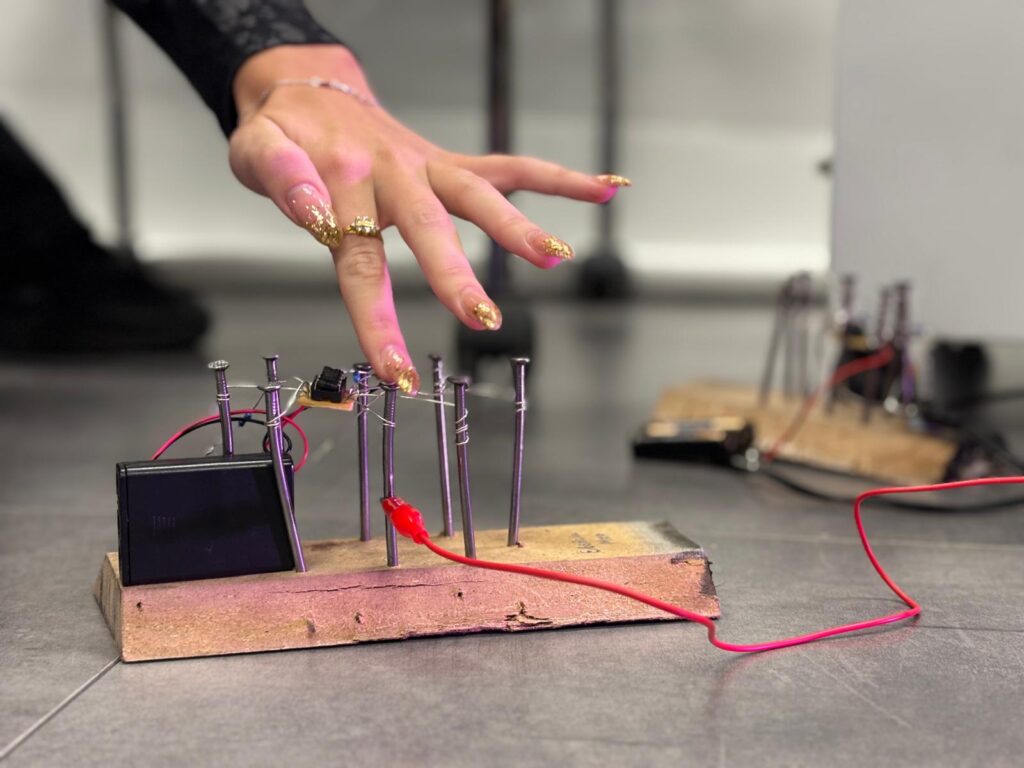
The entanglements of aesthetics of care, the circular economy and the UN’s Sustainable Development Goals, set against the demands of technological education and the practical implications for educators and students underpinned the work of PR2. The work in analysing UN’s SDGs and EU’s Action Plan for the Circular Economy was enriched by the seminar series, bringing a diverse range of perspectives to bear on these complex and ‘wicked’ problems. This work in turn informed the collaborative development of the Teacher Programme with PR3 and the Student Programme developed by PR4.
This work is outlined in detail in the Aesthetics & Circular Economy Handbook which is available to download.
Click to download the Aesthetics & Circular Economy Handbook(PDF)
